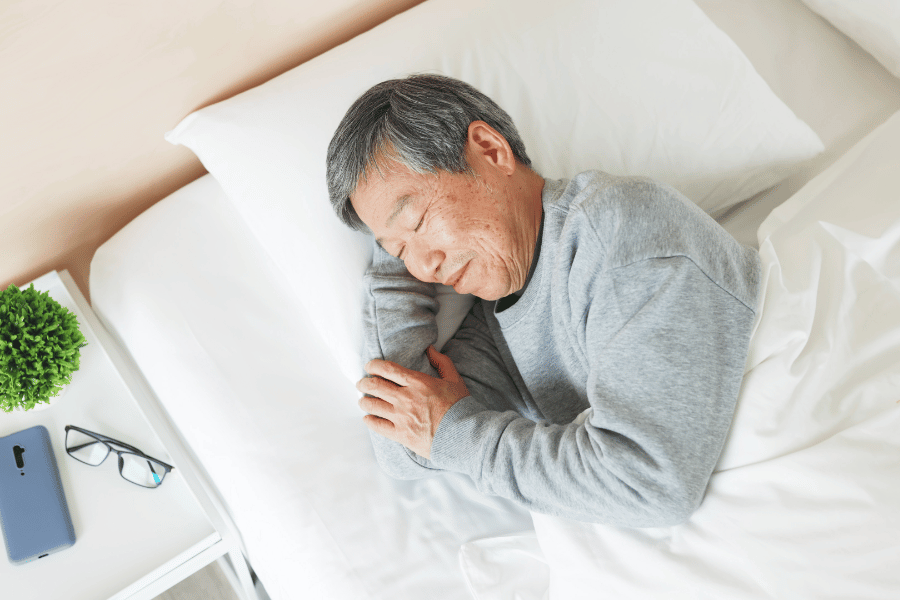
Table of contents
Introduction:
Sleep disorders can significantly impact the overall health and well-being of individuals, especially the elderly. Many factors contribute to the development of sleep disorders, including dental issues.
Fortunately, advancements in dental technology have led to the creation of clear aligners, a popular orthodontic treatment.
Understanding sleep disorders in the elderly
Sleep disorders are prevalent among the elderly population. Conditions such as sleep apnea, insomnia, and restless leg syndrome can lead to fragmented sleep, daytime fatigue, and diminished cognitive function.
These disorders are often associated with underlying physical or mental health conditions, including dental issues. Addressing these dental problems can play a crucial role in managing and even preventing sleep disorders in the elderly.
The link between dental health and sleep disorders
The oral cavity is closely connected to the upper respiratory system, and dental abnormalities can obstruct the airway during sleep. This can result in sleep apnea, a common sleep disorder characterized by breathing interruptions throughout the night.
Dental issues such as malocclusion, overcrowding, or misaligned teeth can contribute to sleep apnea by narrowing the airway passage and impeding proper airflow. Consequently, finding a solution to these dental problems is crucial to improving sleep quality and overall health in the elderly.
Clear aligners: A non-intrusive orthodontic treatment
Clear aligners have revolutionized orthodontic treatment by providing a discreet and comfortable alternative to traditional braces. These custom-made, transparent trays gradually shift the teeth into their proper alignment.
Unlike traditional braces, clear aligners are removable, allowing for easy maintenance of oral hygiene and reducing the risk of dental problems that may contribute to sleep disorders.
How clear aligners address dental issues
Malocclusion
Malocclusion, or an improper bite, can result in tooth misalignment and contribute to sleep apnea. Clear aligners help correct malocclusion by applying gentle pressure to move the teeth into their ideal positions.
By aligning the teeth properly, clear aligners can improve the airflow during sleep, reducing the risk of breathing difficulties and sleep disruptions.
Overcrowding
Overcrowded teeth can cause misalignment, making it harder to maintain proper oral hygiene. The buildup of plaque and bacteria in hard-to-reach areas can lead to gum disease and other dental problems, which may further exacerbate sleep disorders.
Clear aligners address overcrowding by gradually shifting the teeth, creating adequate space, and facilitating effective oral care.
Misaligned teeth
Misaligned teeth can hinder proper jaw positioning and compromise the airway. By using clear aligners to correct misalignment, the teeth can be repositioned to optimize the airflow, reducing the occurrence of sleep apnea and related sleep disorders.
Clear aligners offer a non-intrusive solution, as they do not require the use of bulky brackets or wires.
The benefits of clear aligners for the elderly
Enhanced sleep quality
By addressing dental issues that contribute to sleep disorders, clear aligners can improve the quality and duration of sleep in the elderly. Proper alignment of the teeth promotes unobstructed breathing during sleep, reducing the risk of sleep apnea and allowing for a more restful night's sleep.
Improved overall health
Quality sleep is essential for overall health and well-being. Clear aligners can help reduce the risk of associated health issues such as cardiovascular problems, cognitive decline, and mental health disorders by preventing sleep disorders. Additionally, by promoting proper oral hygiene, clear aligners contribute to better oral health, reducing the risk of gum disease and tooth loss.
Choosing clear aligners for your loved ones
Clear aligners provide a non-intrusive and effective solution to dental issues that may contribute to sleep disorders in the elderly. By addressing problems such as malocclusion, overcrowding, and misaligned teeth, clear aligners can improve airflow during sleep, reducing the risk of sleep apnea and other related sleep disorders.
The benefits of clear aligners extend beyond enhanced sleep quality, as they also contribute to better overall health by reducing the risk of associated health issues and promoting proper oral hygiene.
If you or a loved one is experiencing sleep disturbances and suspect dental issues may be contributing to the problem, consulting with a dental professional is highly recommended. They can assess your oral health and determine if clear aligners are a suitable treatment option for you. Remember, clear aligners offer a comfortable, discreet, and non-intrusive alternative to traditional braces, making them an ideal choice for the elderly population.
Don't let dental problems interfere with your sleep and overall well-being. Consider clear aligners as a valuable tool in preventing sleep disorders and improving your quality of life.
Take the first step towards a healthier smile and restful sleep by exploring clear aligner options with your dental professional today.
FAQs
Can clear aligners really help prevent sleep disorders in the elderly?
Yes, clear aligners can help prevent sleep disorders in the elderly by addressing dental issues that contribute to sleep apnea and other disorders.
How do clear aligners improve sleep quality?
Clear aligners improve sleep quality by aligning the teeth properly, allowing for unobstructed breathing during sleep and reducing the risk of sleep apnea.
Can clear aligners address dental issues like malocclusion and misaligned teeth?
Absolutely, clear aligners can effectively address dental issues such as malocclusion and misaligned teeth, which can contribute to sleep disorders in the elderly.
Are clear aligners a suitable option for the elderly?
Yes, clear aligners are a suitable option for the elderly. They provide a non-intrusive and comfortable orthodontic treatment that can help improve sleep quality and overall health.